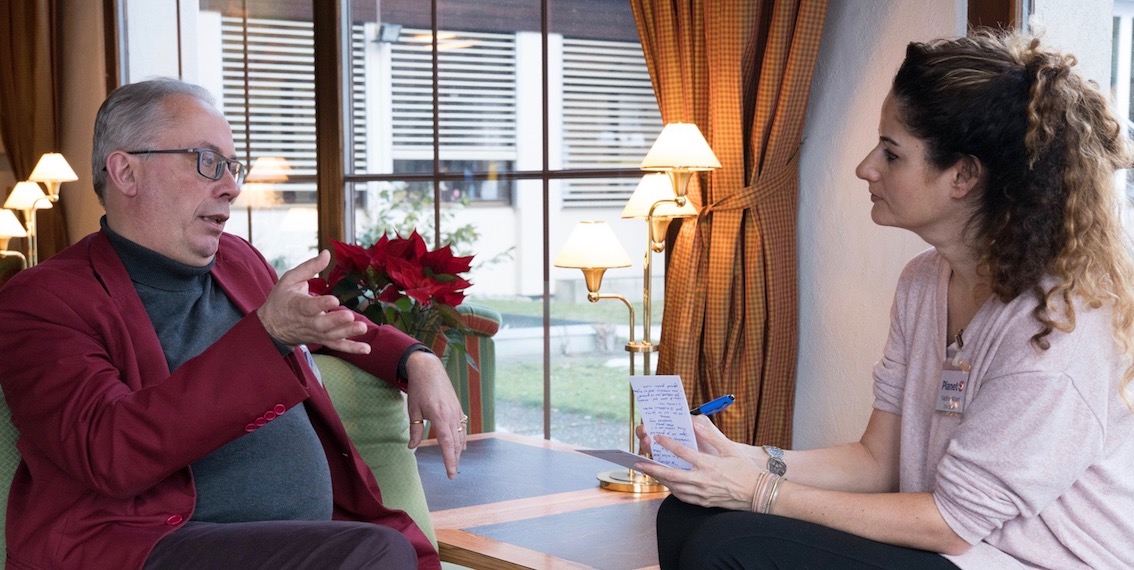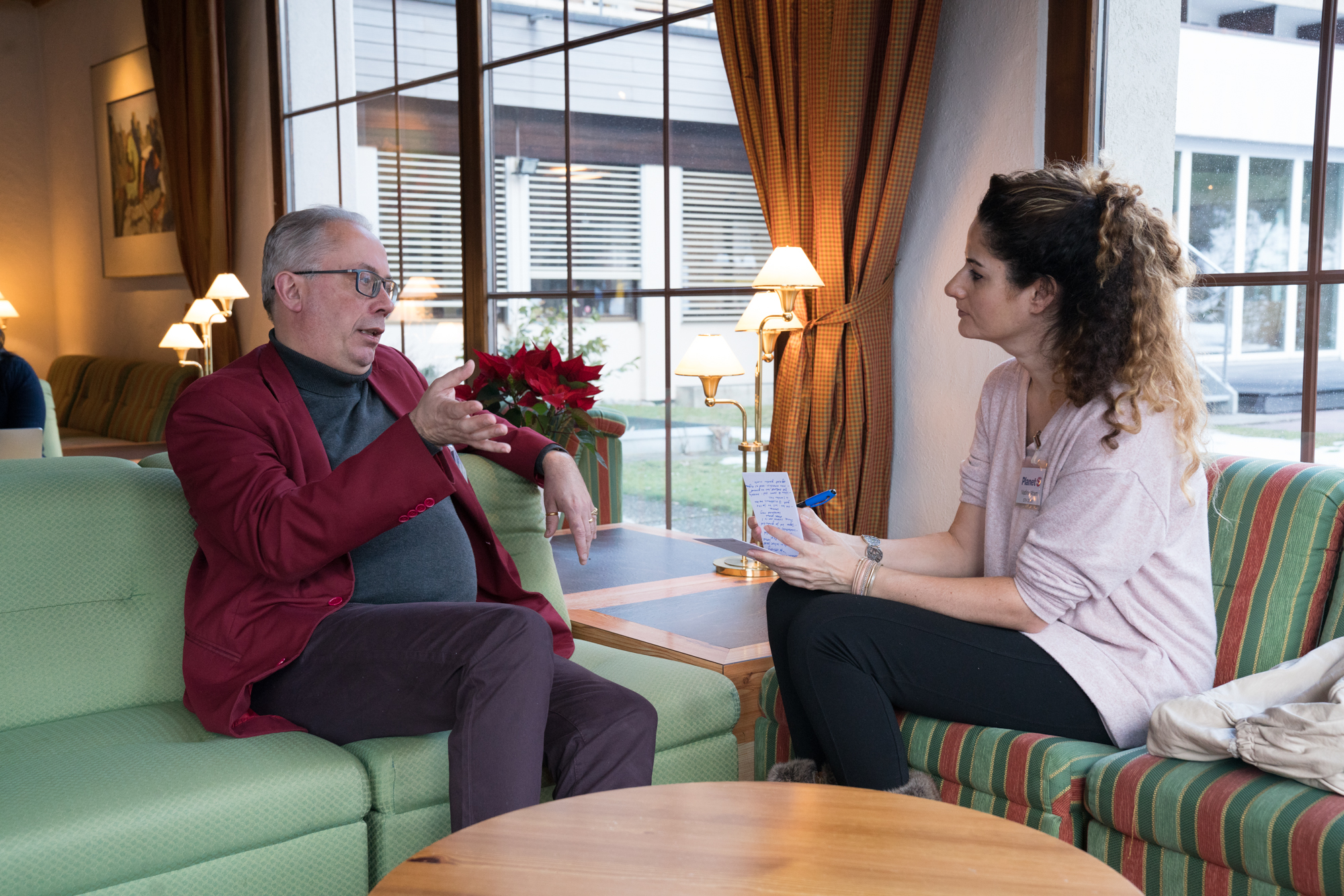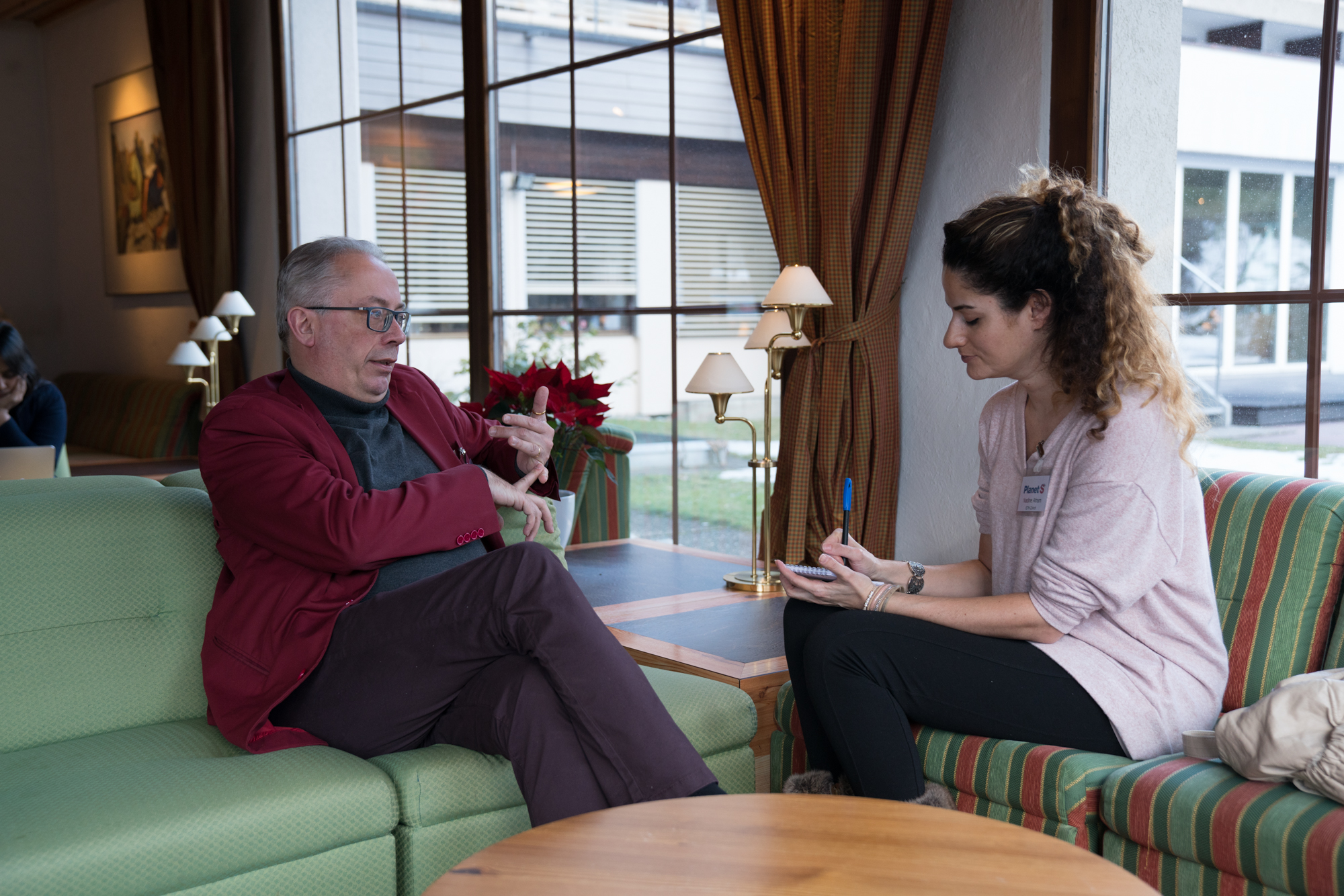“Sometimes, it is not ourselves that we have to focus on”

Tomas Brage is a Professor of Physics at Lund University, Sweden. His research interests are in e.g. Laboratory Astrophysics as well as in Education and Didactics, Research in Physics, Gender and Equal Opportunities, Outreach, and Internationalization. At Lund University, he has led the Gender Certification project and the Core-Value project. In 2012, he has received the Gunilla Jarlbro prize for important contributions to the work for equality at Lund university. He is a member of the steering committee for gender issues of the League of European Research Universities (LERU) and member of the expert advisory board of the Gender Equality Network in European Research Area (GENERA) project.
During our General Assembly 24-26 January 2018 in Grindelwald, he gave a talk with the title ‘What does gender have to do with Physics’, which was very well received by our group. I also had the opportunity to interview Tomas about his motives for working towards equality and his views and advice for implementing a successful gender strategy.

Tomas Brage in conversation with Nadine Afram in Grindelwald. (Photos Sylviane Blum)
Nadine Afram: You have been in Grindelwald at the NCCR MUST meeting and the NCCR PlanetS meeting, how is the atmosphere?
Tomas Brage: It was a good atmosphere, I got many questions. It was also a bit controversial at times.
How is it usually when you give presentations on gender and science, what kind of feedback do you get?
I show a lot of research and sometimes the frustrating part is that some people only remember the part that they can attack. Social science has small numbers in the research and people are sometimes provoked by this. The important thing is not to get mad bad at the provoker.
What can you do to convince people of the importance of gender issues?
Base it on numbers! Also, it is an advantage for me that I am a male Professor in Physics, this means power and I am listened to. But sometimes people get mad and ask ‘Why do you show the other side?’. Then I reply: ‘Which other side?’. My job is not to show the ‘good’ side or polished results.
What is your long-term view on #metoo? Will it have a good impact?
Yes, I think it will be for the good. In Sweden, there is an academic #metoo as well, which at the beginning scared the Swedish universities, because they thought they would get a lot of complaints, but that didn’t happen.

Tomas Brage: “Really, there are simple rules: Don’t offend anyone. Don’t hug/touch a student.”
What do you say to men who are unsure of what is still OK in the work environment?
This is a way of resistance for being able to continue behaving like they want to, in the predatory way. I ask them: Really? You don’t know what is okay? Have you thought about the way you talk to women? Really, there are simple rules: Don’t offend anyone. Don’t hug/touch a student. Sometimes, if a student is sad after an exam and you want to console her: just ask, if it is OK to hug, but don’t just use your power and hug unasked. This is used often: ‘I have the power physically, I can touch you.’
Was there a personal experience or event that made you go into gender research?
Not, but after I started working in this field, I started noticing harassment.
How did you get to work in gender equality?
I was working on policies as part of my job and it was frustrating after a while, because policies were not implemented. So we started doing operative things at Lund University, such as workshops. After that, I was in a working group against sexual harassment. We created a workshop against sexual harassment. We offer it in Sweden at universities. It has to be done with care, and it is not something mandatory to be ticked off at the beginning of an employment, but it is offered to everyone. Now, I am also being invited to talks outside of Sweden, because of my connection with LERU (see introduction).
Then, I was asking myself why there was no research done, but of course there was and I read it and started doing my own research: Why is Physics so gendered? The culture and the subject are moulded into each other, which is interesting. There are different thoughts about what research should be: Should it be curiosity driven or does it have to be of value for the society?

Tomas Brage: “We also offer courses on gender and science for those students who want to become teachers.”
You worked in many different locations worldwide – are there global differences in the Physics work environment for women?
The culture of Physics (meritocracy?) serves as model for the group culture in the US and Germany, for example. This is bad. Japan is bad for gender balance, and in China there are women present but harassment is common.
When I talk to my male colleagues in Astrophysics, they often ask me why there is not more done for other minorities in Physics, for general diversity?
If this argument is used by non-minority males, it is used as an argument against gender work. Sometimes people say we should focus on diversity, but no: we have to focus on gender, then diversity. Because women are a majority. Then we focus on minorities and diversity.
Which is the best feedback you ever got?
There are a few nice feedbacks I got, such as:
Usually, when I sit in talks, I hope it is over quickly. With you, I was hoping each time that it was not the last slide!
When someone comes and says: I didn’t know the situation was this bad. I learned something
When women say: Thank you for pointing these things out. I didn’t know I didn’t have to accept this. [harassment]
What was the worst feedback ever?
‘Your talk was entertaining, but the research is garbage’. Or also, when people can’t see that the way you do research can differ.
Sometimes, women say it is victimising. Sometimes, it is not ourselves that we have to focus on. We should stop making ourselves the filter for everything and get away from ‘If I don’t experience it, it doesn’t exist’.
You also do a lot for education: has the way you teach (or the language you use) changed after doing gender research?
Of course, I insist on teaching Mechanics in the first semester and don’t transmit the message ‘Physics has all answers’, but right from the start focus on the philosophy and how it has to do with humanity. We also develop teaching techniques, like blended learning or flipped classrooms. We also offer courses on gender and science for those students who want to become teachers.
Do you have children?
Yes, a daughter and a son. My daughter became a car mechanic.
Website of Tomas Brage: http://www.fysik.lu.se/english/education/staff/tomas-brage/
Categories: Internal Newsletter
